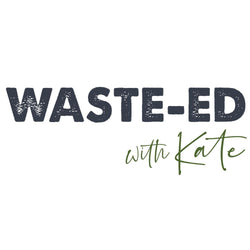Compost like a pro – the 3 main methods

Recycling Food Waste
This is something that is much easier than you would expect. In years gone by, every household had a compost heap. It was nothing like what we can get now, it was most likely just a few bits of 4x2 in the corner of your back yard where grass clipping and food scraps used to get thrown together.
I know when we first thought about getting a compost bin we thought it was going to take more time to manage. But we decided to purchase one and see how we got on with it.
We spent about $35 and put it out by the shed and started putting our food scraps in it. Originally I thought we were going to fill it up in no time as we were putting a bit of grass clippings in, the food waste and shredded paper from my office. However we were surprised at how quickly everything started breaking down and since we started using it about 8 years ago we have only emptied it maybe three times.
We also noticed that as soon as we took the food waste out of our general waste bin, it stopped smelling because there was nothing putrefying in it.
After a while we had put in a couple of gardens and we decided to try our hands at worm farming. My husband Vaughn went on a course for a couple of hours to learn all about it. He came home from the course with a worm farm and we got started.
The funny thing was that we have found that it doesn’t actually take much time at all to use either of the options. The only thing we changed was that instead of putting all of the food waste in the rubbish bin, we have a bucket for food waste that we put in the compost bin and one for the worm farm. It is really easy. We use the worm tea from the worm farm to put around our fruit trees and on the garden, the compost goes into the raised bed gardens that we have and so does the vermicast that comes out of the worm farm.
Here is a bit more information about your composting options.
There are a number of ways you can recycle your household food waste - In Compost bins, using the Bokashi method or worm farming.
Compost Bins
You can get a basic enclosed plastic compost bin from your local hardware store for $35 - $50 or you could get some un treated wood and make one up yourself.
By using an enclosed bin this will trap the heat in and keep the bacteria working more efficiently. An enclosed bin will produce compost faster than an open compost heap.
You need to make sure you put it in a place that is well drained and you need to keep the compost covered to keep the rain off. The compost needs to be moist but not drenched.
There is only a small amount of management required to ensure you have the best composting environment. You can do this by adding alternate layers of materials. 70% of the material should be made up of material rich in carbon such as branches, untreated sawdust, or I use shredded paper. The other 30% should be rich in nitrogen like grass clipping or vegetable waste. You can also add a sprinkle of lime from time to time to raise the PH and help with the breakdown.
For more information head to:https://compostcollective.org.nz
Free composting courses in Auckland
Composting is simpler and cleaner than you might think. Learn how you can start turning your food scraps and garden waste into nutritious compost at a free local workshop.
Find out which system is right for you - bokashi, worm farm or compost bin. With two hour workshops all around Auckland, it's easy to find one in your area. Attend a workshop and receive a $40 voucher so you can have a composting system at home. Book your spot at www.compostcollective.org.nz
By using an enclosed bin this will trap the heat in and keep the bacteria working more efficiently. An enclosed bin will produce compost faster than an open compost heap.
You need to make sure you put it in a place that is well drained and you need to keep the compost covered to keep the rain off. The compost needs to be moist but not drenched.
There is only a small amount of management required to ensure you have the best composting environment. You can do this by adding alternate layers of materials. 70% of the material should be made up of material rich in carbon such as branches, untreated sawdust, or I use shredded paper. The other 30% should be rich in nitrogen like grass clipping or vegetable waste. You can also add a sprinkle of lime from time to time to raise the PH and help with the breakdown.
For more information head to:https://compostcollective.org.nz
Free composting courses in Auckland
Composting is simpler and cleaner than you might think. Learn how you can start turning your food scraps and garden waste into nutritious compost at a free local workshop.
Find out which system is right for you - bokashi, worm farm or compost bin. With two hour workshops all around Auckland, it's easy to find one in your area. Attend a workshop and receive a $40 voucher so you can have a composting system at home. Book your spot at www.compostcollective.org.nz


Worm Farming
To start with a worm farm, you will need:
Once your farm is set up, you add the food scraps in thin layers at regular intervals and the worms will turn it into compost.
The worms like to be kept moist by covering them with cardboard, newspaper or carpet. With the pre made worm farms you can collect the liquid from the bottom of the container (worm tea) and mix it with water to use as a fertilizer to put on your plants.
Every few months you can empty the compost (vermicast) from the base of the farm by putting it into your garden or soil.
For more information head to:
http://www.wormsrus.co.nz/composting.html
http://www.hungrybin.co.nz/instructions/getting-started/
- A container or a pre-made worm farm
- Bedding – such as shredded paper or compost
- Worms – tiger worms who like food scraps
- Food – you can feed them most human foods but they don’t like onions, garlic, spicy foods or citrus.
Once your farm is set up, you add the food scraps in thin layers at regular intervals and the worms will turn it into compost.
The worms like to be kept moist by covering them with cardboard, newspaper or carpet. With the pre made worm farms you can collect the liquid from the bottom of the container (worm tea) and mix it with water to use as a fertilizer to put on your plants.
Every few months you can empty the compost (vermicast) from the base of the farm by putting it into your garden or soil.
For more information head to:
http://www.wormsrus.co.nz/composting.html
http://www.hungrybin.co.nz/instructions/getting-started/
Bokashi Method
Bokashi is a great alternative if you are limited for space.
The Bokashi ferments the food scraps. It actually prevents it from rotting so it doesn’t attract flies and because it is sealed, you wont get any unwanted four legged visitors.
It is an airtight system where you put your food waste and some Bokashi mix into an airtight bucket and leave it for 7-10 days and that’s it - you have a bucket of valuable fertiliser ready to bury in your garden. Once buried, the food waste will turn into rich, black organic compost in about 4 weeks.
You can place Bokashi mix in an existing compost heap as well. This will also accelerate your conventional composting method significantly too.
For more information head to:
The Bokashi ferments the food scraps. It actually prevents it from rotting so it doesn’t attract flies and because it is sealed, you wont get any unwanted four legged visitors.
It is an airtight system where you put your food waste and some Bokashi mix into an airtight bucket and leave it for 7-10 days and that’s it - you have a bucket of valuable fertiliser ready to bury in your garden. Once buried, the food waste will turn into rich, black organic compost in about 4 weeks.
You can place Bokashi mix in an existing compost heap as well. This will also accelerate your conventional composting method significantly too.
For more information head to:
http://www.zingbokashi.co.nz
http://www.bokashiboost.co.nz/howtocompost.aspx

What can you do....don't put green waste or food waste in your general landfill rubbish bin. Contact your council to see if there are any courses you can do to further educate your household on recycling food waste.
Powered by AZEXO Shopify page builder




















